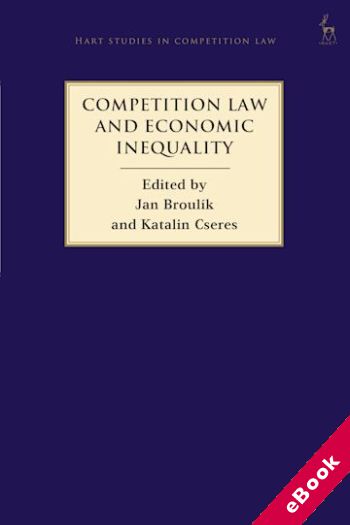
The device(s) you use to access the eBook content must be authorized with an Adobe ID before you download the product otherwise it will fail to register correctly.
For further information see https://www.wildy.com/ebook-formats
Once the order is confirmed an automated e-mail will be sent to you to allow you to download the eBook.
All eBooks are supplied firm sale and cannot be returned. If you believe there is a fault with your eBook then contact us on ebooks@wildy.com and we will help in resolving the issue. This does not affect your statutory rights.
The gap between the rich and poor is widening across the globe. This book explores whether this major societal challenge of our time can be addressed by the means of competition law.
The primary goal of today's competition law is to ensure that market power does not lead to an inefficient production of goods and services. Nevertheless, even such efficiency-oriented curbing of market power may arguably contribute to the reduction of differences in how much people own and earn. Furthermore, many competition law regimes do take into account distributive considerations too.
The chapters investigate the relationship between competition law and economic (in)equality from philosophical, historical, and economic perspectives. Their inquiries concern the conceptual foundations of competition law and doctrinal frameworks of individual jurisdictions, as well as specific problems and markets. As such, the book provides a novel and comprehensive overview of whether and how competition law can contribute to more equality in both developed and developing countries.
The book is a must-read for researchers, public officials, judges, and practitioners within the competition law community. It will also appeal to anyone more broadly interested in issues of inequality and economic policy.